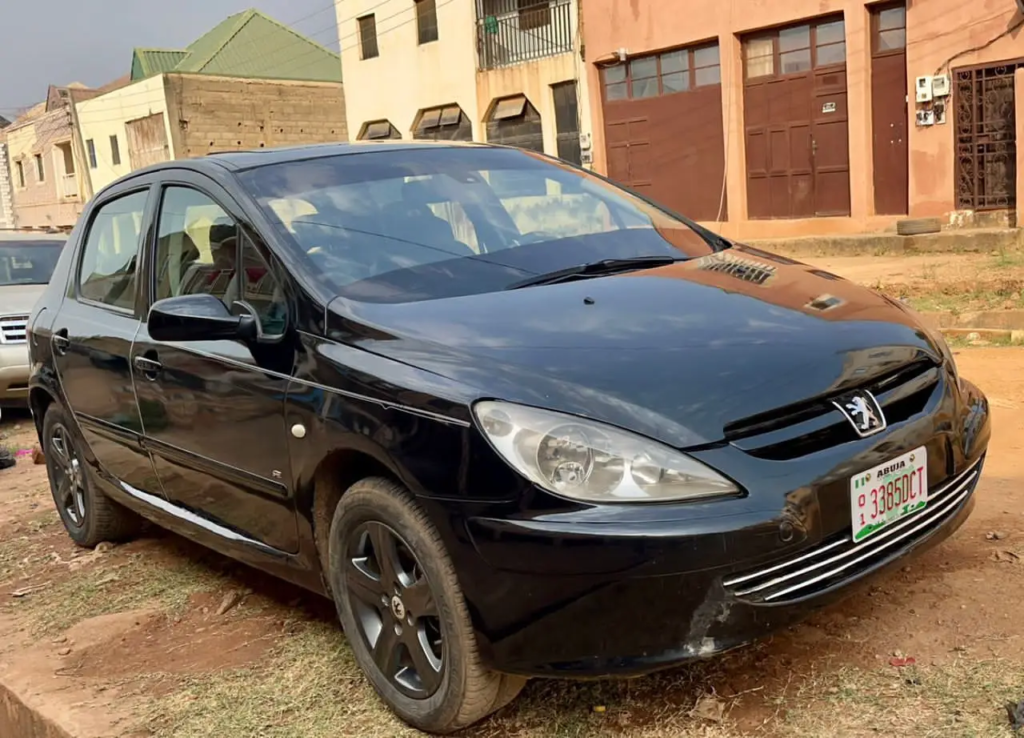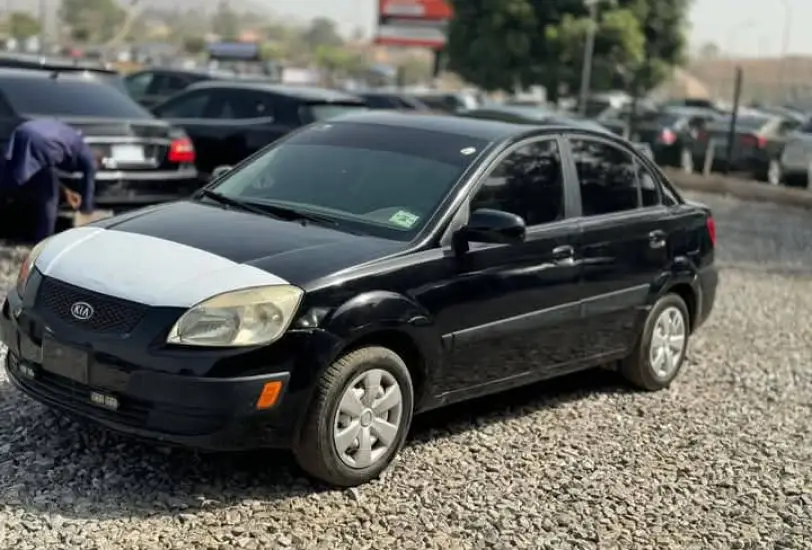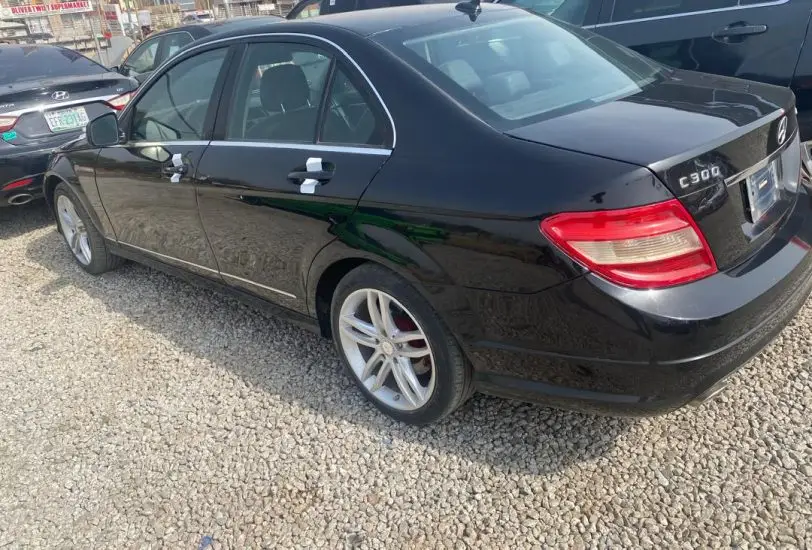The dream of owning a quality car in Nigeria is a powerful one. It represents mobility, convenience, and for many, a significant step up in life and business. However, in today’s economic climate, with rising costs and the immense price tag of brand-new vehicles, paying cash for a car is an option available to only a few.
This is where car financing becomes not just a useful tool, but the most practical and smartest path to vehicle ownership for millions of Nigerians.
Yet, the process of securing a car loan in Nigeria can feel intimidating. It’s a world of financial terms, detailed paperwork, and varying requirements that can seem confusing to a first-time applicant.
What exactly is APR? What documents do you need if you’re a business owner versus a salary earner? How does the process even work?
This guide is here to answer those questions. We will demystify the entire car loan process from start to finish. We will break down the essential terms you need to know, outline the steps you’ll take, and explain what lenders are looking for, all in simple, clear language. This is your foundational guide to understanding car loans and taking the first confident step toward financing your dream car.
This guide covers the basics. For a full overview of all your financing options, read our The Complete Guide to Financing a Tokunbo Car in Nigeria.
The Anatomy of a Car Loan: Understanding the Key Terms
Before you approach any bank or lender, it’s crucial to understand the language they speak. Getting a grasp of these five key terms will empower you to understand any loan offer and make an informed decision.
- Principal: This is the actual amount of money you are borrowing to purchase the car after you have made your down payment. If a car costs ₦10 million and you pay a ₦2 million down payment, the principal of your loan is ₦8 million.
- Interest: This is the fee you pay to the lender for the service of borrowing their money. It is usually expressed as a percentage rate. Think of it as the “cost” of the loan. A lower interest rate means a cheaper loan.
- Tenure: This is the length of time you have to repay the loan. In Nigeria, car loan tenures typically range from 12 months to 48 months (4 years), with some lenders offering up to 60 months (5 years). A longer tenure means lower monthly payments, but you will pay more in total interest over time.
- Down Payment (Equity): This is the initial, upfront amount you pay from your own pocket towards the car’s price. Most Nigerian lenders require a down payment, typically between 10% and 30% of the vehicle’s value. Paying a larger down payment reduces your loan principal and can often help you secure a better interest rate.
- APR (Annual Percentage Rate): This is perhaps the most important figure to consider. The APR represents the true yearly cost of your loan, as it includes the interest rate plus most of the associated fees. Always compare loan offers based on their APR, not just the headline interest rate.
To see how these factors affect your payments, read our guide on Understanding Loan Terms & Interest Rates.
The Two Paths: Loans for Salary Earners vs. Business Owners
Lenders in Nigeria assess risk differently depending on your source of income. The application process and documentation required will vary significantly if you are a salaried professional or a self-employed business owner.
For the Salaried Professional
If you earn a regular salary, lenders are primarily focused on your income stability. They want to see proof of consistent employment and a monthly salary that can comfortably cover the loan repayment.
- Key Focus: Your debt-to-income ratio (DTI), which is the percentage of your monthly income that goes towards paying debts.
- Essential Documents: Lenders will require your recent payslips (typically the last 3-6 months), a letter of employment from a reputable company confirming your status, and your salary account bank statements.
For the Entrepreneur/Business Owner
If you are self-employed or run your own business, lenders focus on your company’s cash flow and financial viability. They need to see that your business generates enough consistent revenue to support the loan repayment.
- Key Focus: The health and history of your business as shown in your financial records.
- Essential Documents: The documentation is more extensive. In addition to your personal ID and bank statements, you will need to provide your official Business Registration Certificate from the Corporate Affairs Commission (CAC), business bank statements for the last 12 months, and often, audited financial statements and a Tax Clearance Certificate. For limited liability companies, a formal Board Resolution authorizing the loan is also required.
For a detailed checklist of every document you’ll need, see our guide: Loan Application Documents.
The Car Loan Journey: A Simple Step-by-Step Overview
While different lenders have slightly different processes, the journey to securing a car loan in Nigeria generally follows seven clear steps.
- Budgeting & Pre-Approval: Before you do anything else, get pre-approved for a loan. This involves approaching a lender with your basic financial information to get a clear idea of how much you can realistically borrow. This step is crucial as it gives you a firm budget and empowers you during negotiations with car sellers.
- Gathering Your Documents: Meticulously assemble all the required paperwork as detailed in the section above. Having everything ready will significantly speed up your application.
- Finding Your Car & Getting a Proforma Invoice: Once you know your budget, you can find your desired Tokunbo car. To finalize a loan application, the lender will require a Proforma Invoice from the seller (like Autokunbo.com), which is a formal price quotation for that specific vehicle.
- Submitting the Formal Application: With your proforma invoice and all your documents in hand, you can now submit your formal loan application to the lender.
- The Lender’s Review & Approval: The lender will now conduct their due diligence, known as underwriting. They will verify all your documents, perform credit checks, and assess the risk. This can take anywhere from a few hours to several business days.
- Accepting the Offer & Making Your Down Payment: If your application is successful, the lender will send you a Loan Offer Letter detailing all the terms. Once you formally accept the offer, you will be required to pay your agreed-upon down payment.
- Disbursement & Vehicle Collection: After you’ve made the down payment, the lender will disburse the loan principal directly to the car seller. Once the seller confirms payment, you can finally pick up the keys to your new car!
Where Can You Get a Car Loan?
As a buyer in Nigeria, you have three main types of institutions to approach for financing.
- Commercial Banks: The most traditional option, offering potentially competitive rates, especially for existing customers.
- Online Lenders & Fintechs: Modern, digital-first platforms like Autochek and AltDrive that often promise faster and more convenient application processes.
- Dealership Financing: Some large car dealerships facilitate financing in-house or through partnerships, offering the convenience of a one-stop-shop.
To decide which lender is right for you, read our detailed comparison: Comparing Car Loans from Nigerian Banks.
Key Takeaways
- Understand the Key Terms. A car loan involves borrowing a Principal amount, which you repay over a set Tenure (time period) with added Interest (the cost of the loan). Mastering these basic terms is the first step to understanding any loan offer.
- Lender Requirements Depend on Your Income Source. Lenders assess applicants differently. Salaried employees are judged on their income stability and must provide payslips, while business owners are assessed on their company’s cash flow and require CAC registration documents and business bank statements.
- The Loan Application Follows a Clear Sequence. The process is not random. It follows a standard path: get pre-approved, gather all documents, find your specific car to get a proforma invoice, submit your formal application, and await the lender’s approval and disbursement.
- You Have Multiple Lender Options. Your financing choices in Nigeria include Traditional Banks (like Access Bank and Polaris Bank), modern Fintech Platforms (like Autochek and AltDrive), and sometimes Dealership-facilitated financing. Always compare offers from each type.
- Prepare Your Paperwork First to Avoid Delays. The most common reason for a slow or rejected loan application is incomplete documentation. Gathering every required document—from your ID and bank statements to the seller’s proforma invoice for the car—before you apply is the single most important step for a smooth process.
Conclusion: You Are Ready to Take the Next Step
The car loan process, while detailed, is not something to be feared. It is a structured journey that becomes simple and straightforward once you understand the basic terms and the required steps. By preparing your budget and your documents ahead of time, you put yourself in a position of power.
With the foundational knowledge from this guide, you are now ready to confidently explore specific loan products and take the next step toward owning your dream car.
Feeling more confident? The next step is to see what you’re eligible for. At Autokunbo.com, we partner with leading financial institutions to make the process simple. Get a no-obligation pre-qualification today and take the next step toward owning your dream car.







